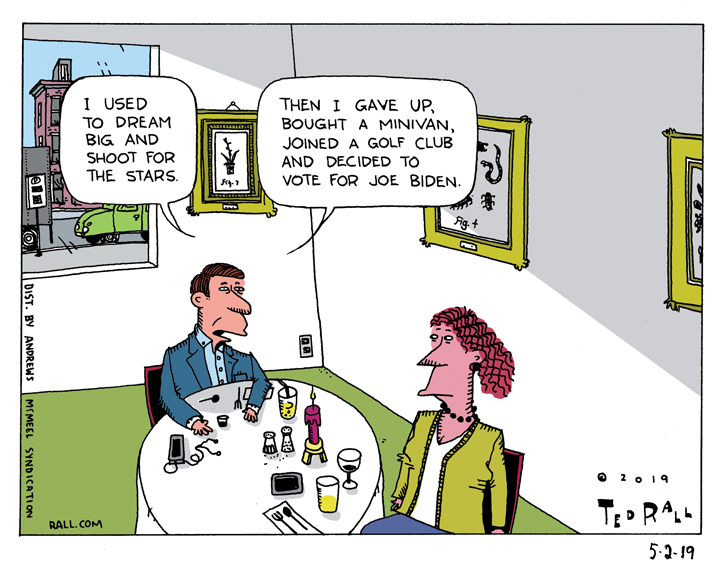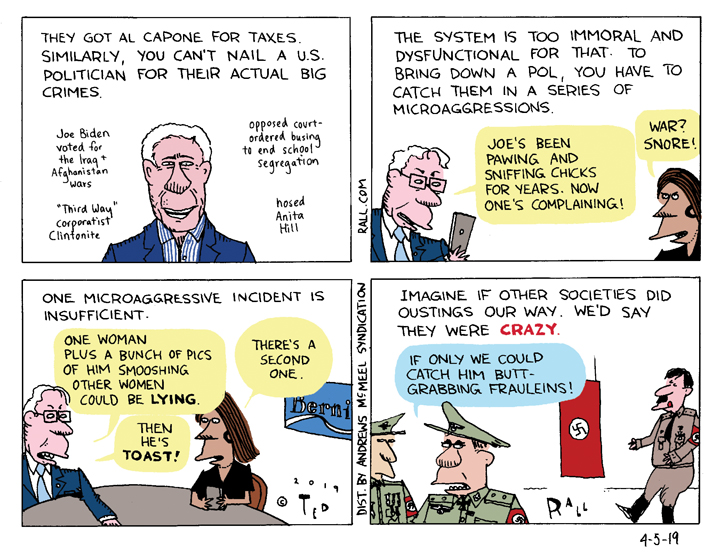 Throughout 2016 the presidential candidates who were not Donald Trump complained to Jeffrey Zucker.
Throughout 2016 the presidential candidates who were not Donald Trump complained to Jeffrey Zucker.“You showed hours upon hours of unfiltered, unscrutinized coverage of Trump!” Todd Harris, an advisor to Senator Marco Rubio, shouted at the head of CNN during a panel discussion after the election. “CNN helped make [Trump] by carrying every speech he made in the primary season,” added Larry King, the former CNN anchorman. “It was almost like the other guys didn’t exist.”
In the general election accusations of pro-Trump favoritism at CNN continued from Hillary Clinton and the Democrats.
“If we made any mistake last year, it’s that we probably did put too many of his campaign rallies in those early months and let them run,” Zucker ultimately confessed. “Listen, because you never knew what he would say, there was an attraction to put those on the air.” Hell, Trump probably didn’t know what he was going to say before he arrived at each podium.
He winged it, riffed off his audience, ran off at the mouth and scrammed before the country knew what hit it.
Trump rallies are freeform jazz. Anything can happen. Quality varies but give the president this: no two performances are the same. “Trump was simply more entertaining and generating more passion,” recalled David Sillito, media reporter for the BBC.
While Trump delivered the extemporaneous devil-may-care thrills of a candidate who doesn’t expect to win, Clinton and Trump’s primary opponents dutifully trudged the land delivering that deadliest of ought-to-be-deceased propaganda formats: the stump speech.
There was Hillary reading from a Teleprompter in Columbus, every word scrupulously stripped of life by her army of staffers, consultants and attorneys. There she was again in Atlanta: same words, same cadences, same gestures and facial expressions. Tune in, tune off. You can hardly blame CNN for skipping some of those cut-and-pasters—to do otherwise would have violated viewers’ human rights.
Stump speeches go back to the early 1800s. Politicians made their way from town to town, first on horseback and then by train, where they delivered the same speech while standing atop a sawed-off tree stump because many areas were freshly cleared forests.
Radio, television and the Internet have revolutionized communication. The last presidential election, in which ad lib shockingly defeated inevitability, demonstrated the obsolescence of the stump speech. Yet this boring tradition endures.
On April 29th former vice president and presidential wannabe-come-lately Joe Biden unleashed his stump speech in Pittsburgh. “There was a $2 trillion tax cut last year. Did you feel it?” Biden asked a group of unionists. “No!” the unionists replied.
“Of course not!” Biden said.
Repetition in Des Moines and Akron and Buffalo and Knoxville will not make this exchange more exciting.
All the major Democratic presidential candidates rely on stump speeches. Introductions are modified to acknowledge local officials in attendance. Sections are dropped to adjust to tight schedules. Location determines the insertion or deletion of certain lines. But the basic structure is the same whether you’re in Dubuque or Decatur. It’s easy to see the appeal of the stump speech. Why pay for a hundred speeches when you can make do with one? Why risk gaffes when you can massage and road-test a veteran rallier?
The Associated Press described the drill in 2016: “Day after day, the candidates for president wake up, brush their teeth and pump themselves up to say the same thing they did yesterday. Most of what they say won’t make the evening news, or get tweeted or repeated. But that spiel they repeat, with variations, to audience after audience in state after state, is a campaign essential.”
What they’re missing is why it won’t make the news. By definition, repetition is not news.
Trump repeatedly made the news by repeatedly saying something new.
Campaigns that still rely on stump speeches are pretending that technology doesn’t exist. It’s impressive when Bernie Sanders talks to 20,000 people. But his real audience isn’t there. A limitless crowd, millions of voters perhaps—is watching on cable news and/or online. But networks won’t carry his rally unless it might break news. A stump speech can’t do that. Even diehard Berners won’t bother to livestream if they see pretty much the same event each time. Been there, saw that, next.
Today’s Democratic stumpers might want to take a cue from the stump speeches of the 19th century, which were actually vibrant and spontaneous expressions of frontier life.
“Refined politicians in the cities may have looked down on stump speeches,” writes history writer Robert McNamara. “But out in the countryside, and especially along the frontier, stump speeches were appreciated for their rough and rustic character. They were free-wheeling performances that were different in content and tone from the more polite and sophisticated political discourse heard in the cities.” America’s first politicians shot brutal insults; audiences rewarded the most outrageous slurs with their votes.
There’s a reason Trump looks uncomfortable reading from a script. He prefers to rock it old school.
(Ted Rall, the cartoonist, columnist and graphic novelist, is the author of “Francis: The People’s Pope.” You can support Ted’s hard-hitting political cartoons and columns and see his work first by sponsoring his work on Patreon.)







 Clinton is too far to the right and have never forgiven her for her positions on free trade agreements and voting in favor of the invasion of Iraq in 2003 keeps saying they want Massachusetts senator and consumer advocate Elizabeth Warren. Pictured at left, she would be challenging the former first lady from the Left. But Warren has repeatedly said she isn’t running, her fans don’t have much money, and her actions – well, more like her inaction in not showing up in key primary states like Iowa – support her
Clinton is too far to the right and have never forgiven her for her positions on free trade agreements and voting in favor of the invasion of Iraq in 2003 keeps saying they want Massachusetts senator and consumer advocate Elizabeth Warren. Pictured at left, she would be challenging the former first lady from the Left. But Warren has repeatedly said she isn’t running, her fans don’t have much money, and her actions – well, more like her inaction in not showing up in key primary states like Iowa – support her 




 Finally, there’s two other governors, both from the Midwest: John Kasich of Ohio and Scott Walker of Wisconsin.
Finally, there’s two other governors, both from the Midwest: John Kasich of Ohio and Scott Walker of Wisconsin.